Have you ever wondered why people go fishing? It’s not just about catching the big one. Fishing is a popular pastime that hooks millions of Americans each year. From stress relief to social bonding, the benefits of fishing might surprise you.
Ready to cast your line into these unexpected perks?
Key Takeaways
Fishing reduces stress and can have calming effects that last up to 3 weeks after a trip.
It provides a full-body workout and gentle exercise while boosting vitamin D levels from sun exposure.
Fishing enhances social bonds and offers a chance to unplug from technology and connect with nature.
Anglers support wildlife conservation through license fees and taxes that fund habitat management.
Fishing tourism boosts local economies by creating jobs and increasing business for shops, restaurants, and hotels in fishing towns.
Table of Contents
Benefits for Physical and Mental Health
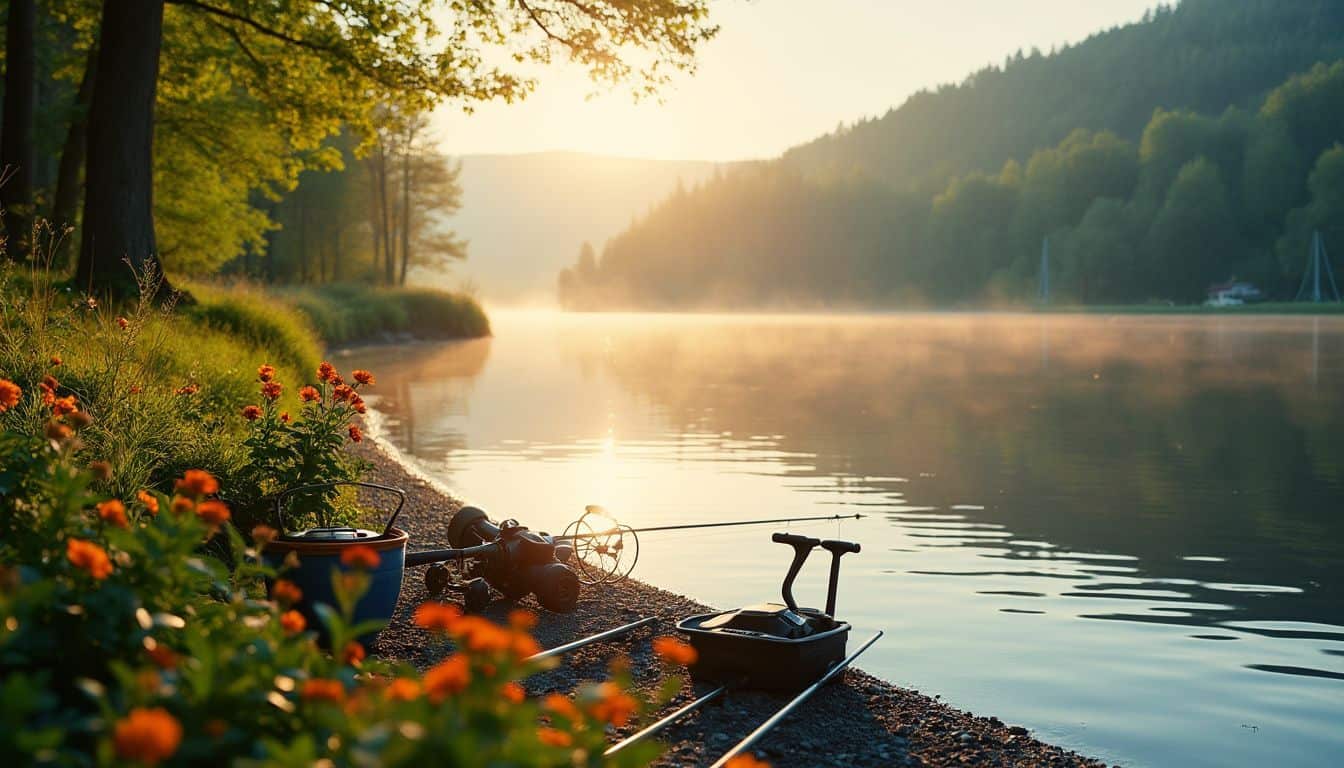
Fishing isn’t just about catching fish. It’s a secret weapon for your body and mind. Casting a line can melt away stress and sharpen your focus… all while soaking up some sunshine and getting your heart pumping.
Stress Reduction
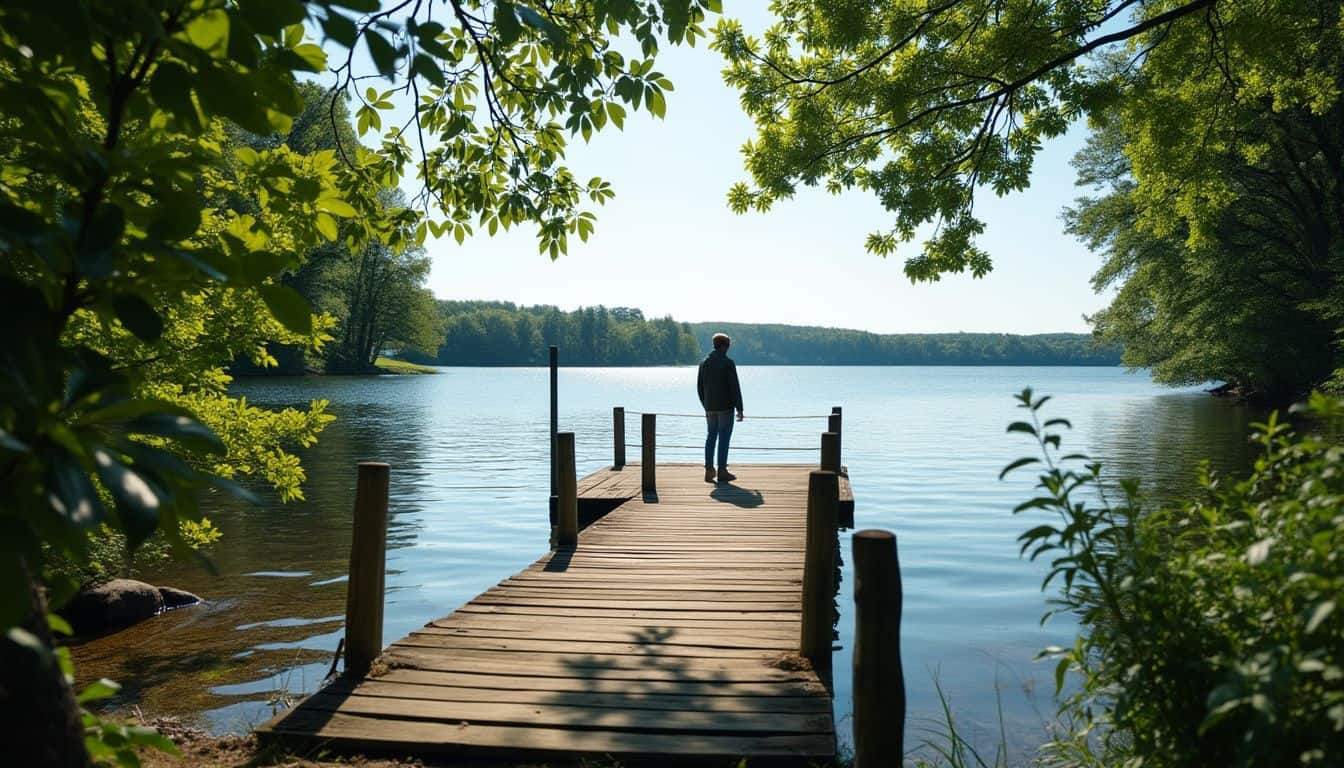
Guys, let’s chat about fishing and stress. It’s like magic for your mind. You’re out on the water, rod in hand, and suddenly… poof! Your worries vanish. It’s not just in your head.
Science backs it up. Fishing lowers your stress hormones. That’s right – it’s nature’s chill pill.
But here’s the kicker – the zen doesn’t stop when you pack up your soft bait combos. The calm can stick around for up to three weeks after your trip.
Talk about a long-lasting effect! And get this – fishing teaches you patience. It’s like a crash course in keeping cool under pressure. As an avid angler myself, I can vouch for this.
There’s something about the wait… the anticipation… it just melts the stress away.
Fishing is the pause button of life. – Unknown
Enhanced Focus and Concentration
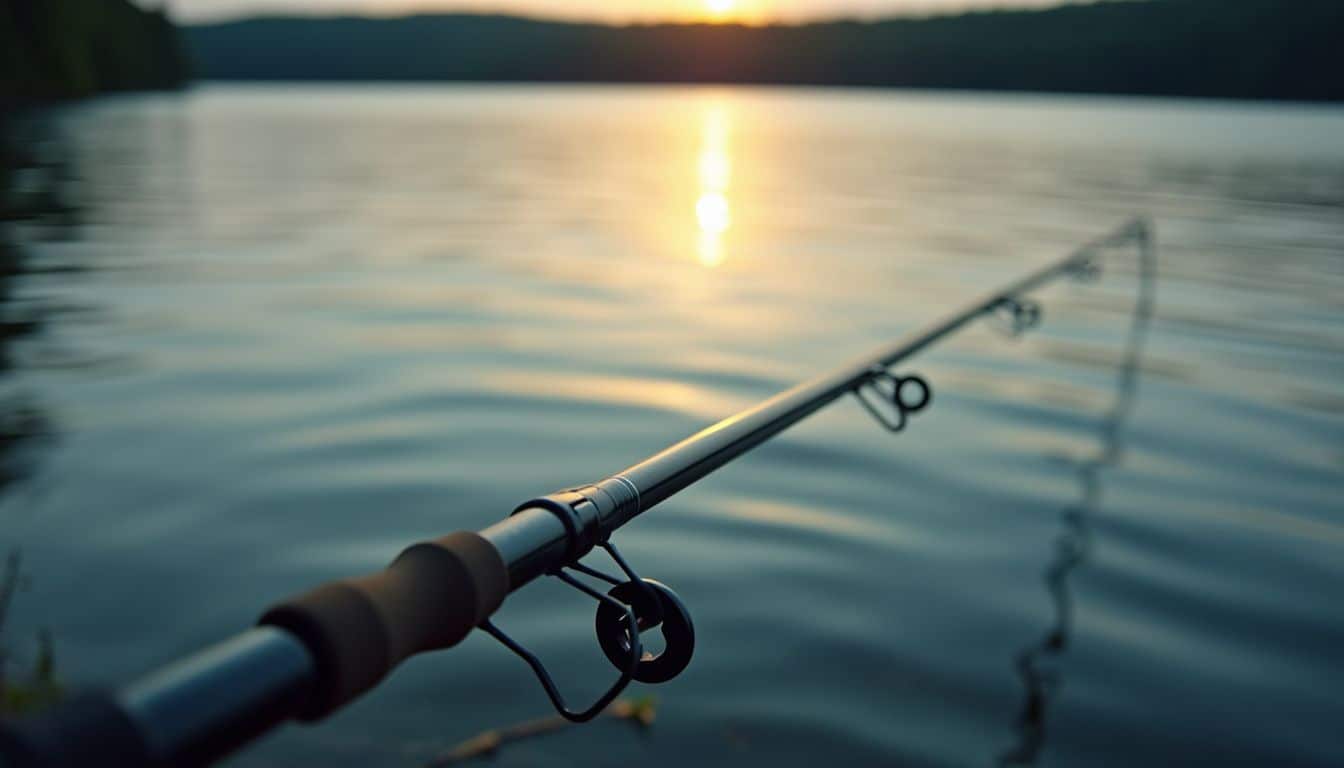
As stress melts away, anglers often find their minds sharpening. Fishing demands keen focus. You’ve got to watch your line, feel for nibbles, and stay alert. It’s like a workout for your brain.
Many guys report slipping into a “flow state” while fishing. That’s when you’re so zeroed in, you lose track of time.
I’ve experienced this firsthand. Once, I spent hours fly-fishing without realizing how long I’d been at it. My mind was clear, focused only on the task at hand. It felt great! This mental clarity can stick with you off the water, too.
Lots of anglers say they feel more focused at work after a fishing trip. It’s like hitting a reset button for your brain. Plus, the quiet time lets you mull over problems without distractions.
You might just reel in a solution to that tricky work issue along with your catch!
Physical Activity Benefits
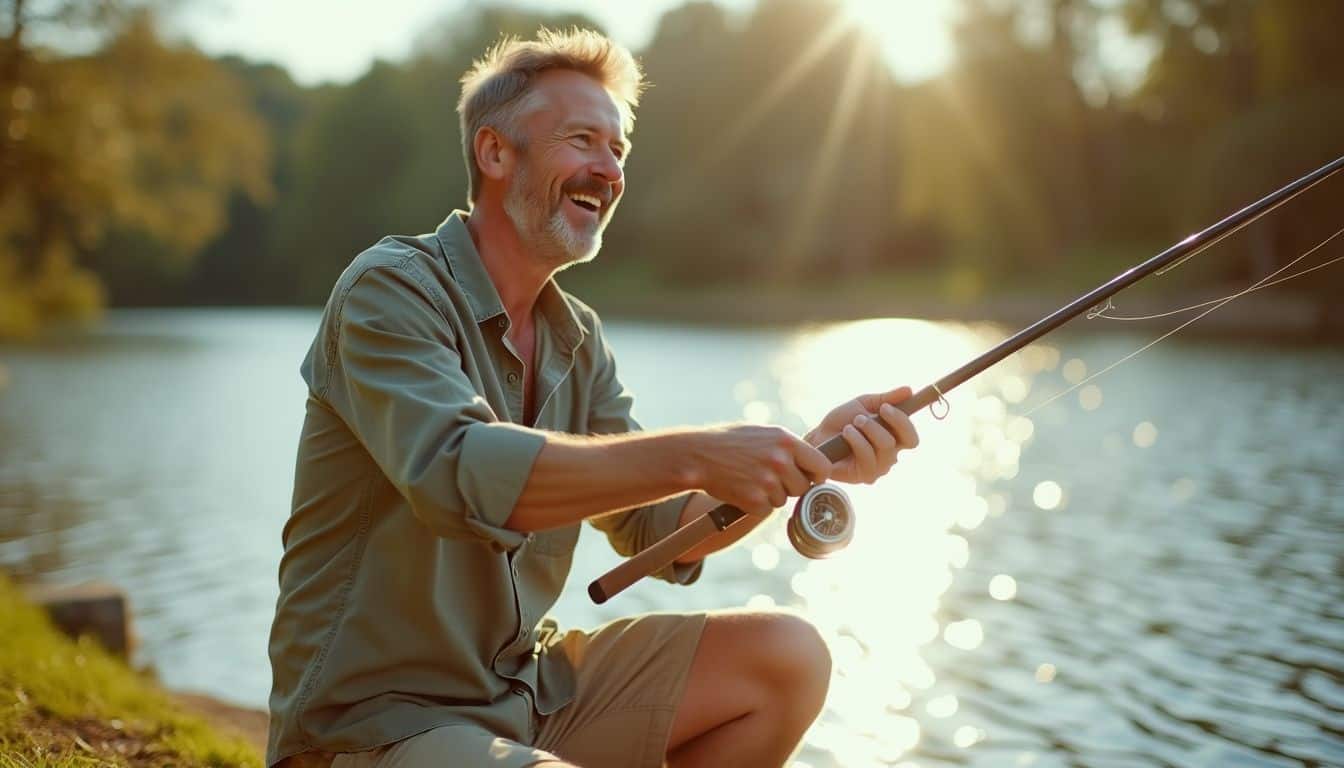
Fishing isn’t just about catching the big one. It’s a full-body workout in disguise! Your arms get a good stretch, casting lines and reeling in fish. Your legs stay active as you wade through streams or balance on a boat.
Even your core muscles join the party, helping you stay upright during the whole adventure. But here’s the kicker – fishing is gentle on your joints. It’s perfect for guys of all fitness levels, from couch potatoes to gym rats.
Want more bang for your buck? Fishing doubles as sneaky cardio. You’re moving around, hauling gear, and battling fish – all without feeling like you’re exercising. Plus, you soak up some vitamin D while you’re at it.
The sun’s rays help your body make this crucial nutrient. Just don’t forget the sunscreen, fellas! Fishing offers a unique blend of physical perks that’ll keep you hooked.
Vitamin D Acquisition
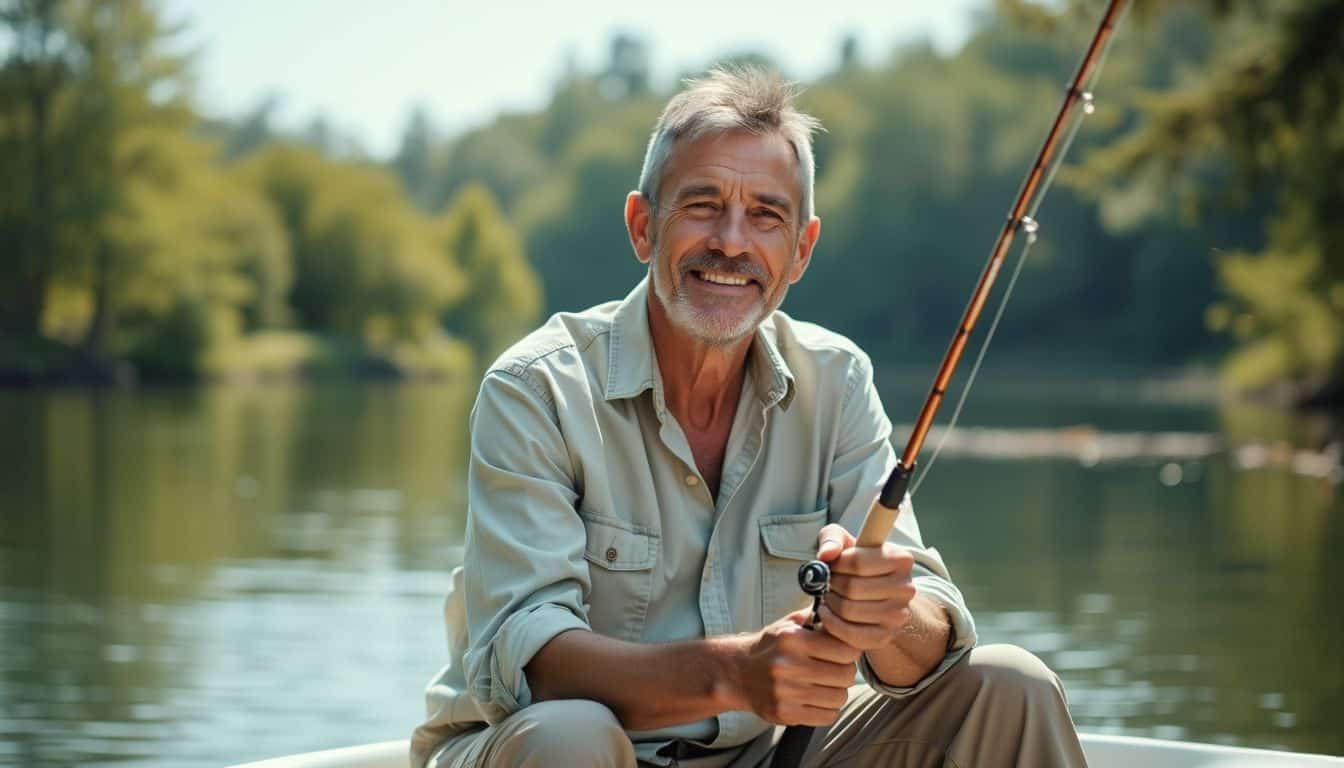
Fishing offers a natural way to soak up some sun and boost your vitamin D levels. This vital nutrient plays a key role in keeping your bones strong and your immune system humming. Spending time outdoors with your rod and reel exposes you to sunlight, which helps your body produce vitamin D.
It’s like getting a health boost while you’re having fun!
A bad day of fishing is still better than a good day at work.
But there’s more to it than just catching rays. Vitamin D from fishing trips may help protect against respiratory infections. It’s like your body’s own shield against colds and flu.
So next time you’re out on the water, you’re not just angling for fish, you’re reeling in some serious health perks too!
Social and Recreational Advantages

Fishing isn’t just about catching fish – it’s a social playground! It’s a chance to bond with buddies, make new pals, and escape the daily grind. Want to know more about how fishing can boost your social life? Keep reading!
Social Bonding Enhancement
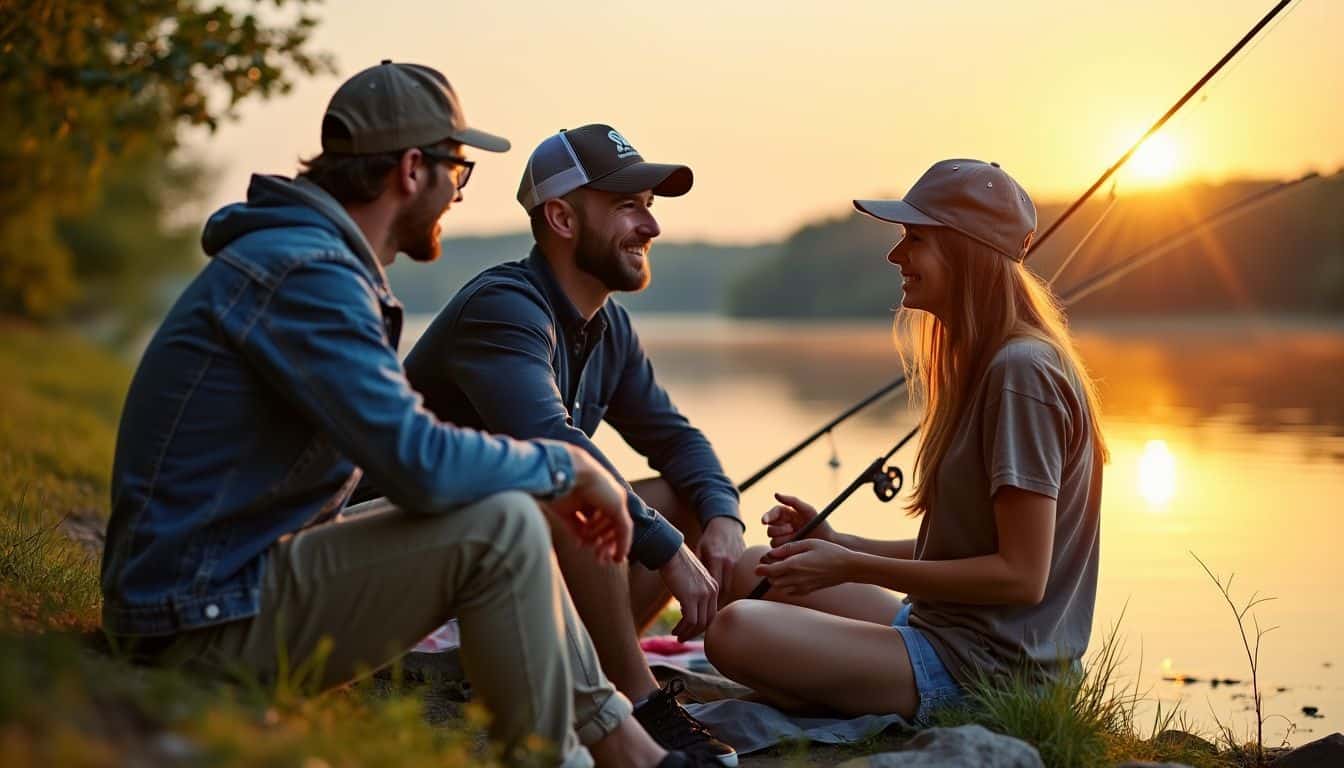
Fishing brings folks together like nothing else. It’s a great way to bond with family and pals. You’re out on the water, swapping stories and laughs while waiting for a bite. That shared experience creates lasting memories.
It’s about catching fish – and catching up with each other.
Fishing trips offer a chance to unplug and really connect. No phones, no distractions – just good company and nature. You might even learn something new from your fishing buddies.
Maybe they’ll show you how to tie the perfect knot or use circle hooks. These shared skills and moments strengthen friendships.
Plus, there’s nothing like the thrill of celebrating a big catch together. It’s these simple joys that make fishing a top-notch social activity.
Relaxation and Escape Opportunities
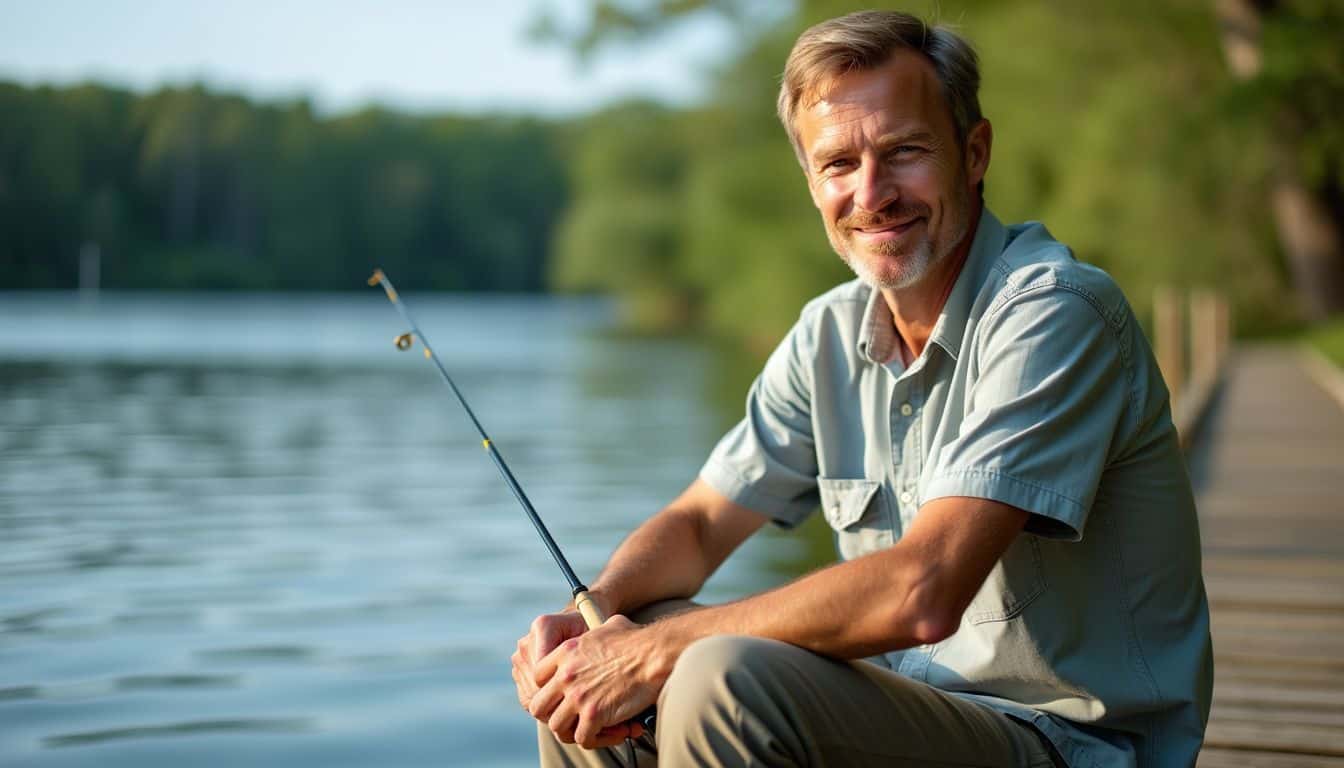
Fishing offers a perfect escape from daily grind. Picture yourself on a quiet lake, rod in hand, with no emails or phone calls to bug you. It’s just you, nature, and the peaceful sound of water lapping at the shore.
This hobby lets you unplug and recharge your batteries. You can forget about work stress and focus on the simple joy of waiting for a bite.
But it’s not just about getting away. Fishing also helps you relax in a unique way. The rhythmic casting and reeling can be almost meditative. It forces you to slow down and be patient – a rare treat in our fast-paced world.
Plus, being near water has a calming effect on the mind and body. It’s no wonder many anglers say they feel refreshed after a day on the water. Now, let’s talk about how fishing can boost your sense of accomplishment.
Contributions to Environment and Economy
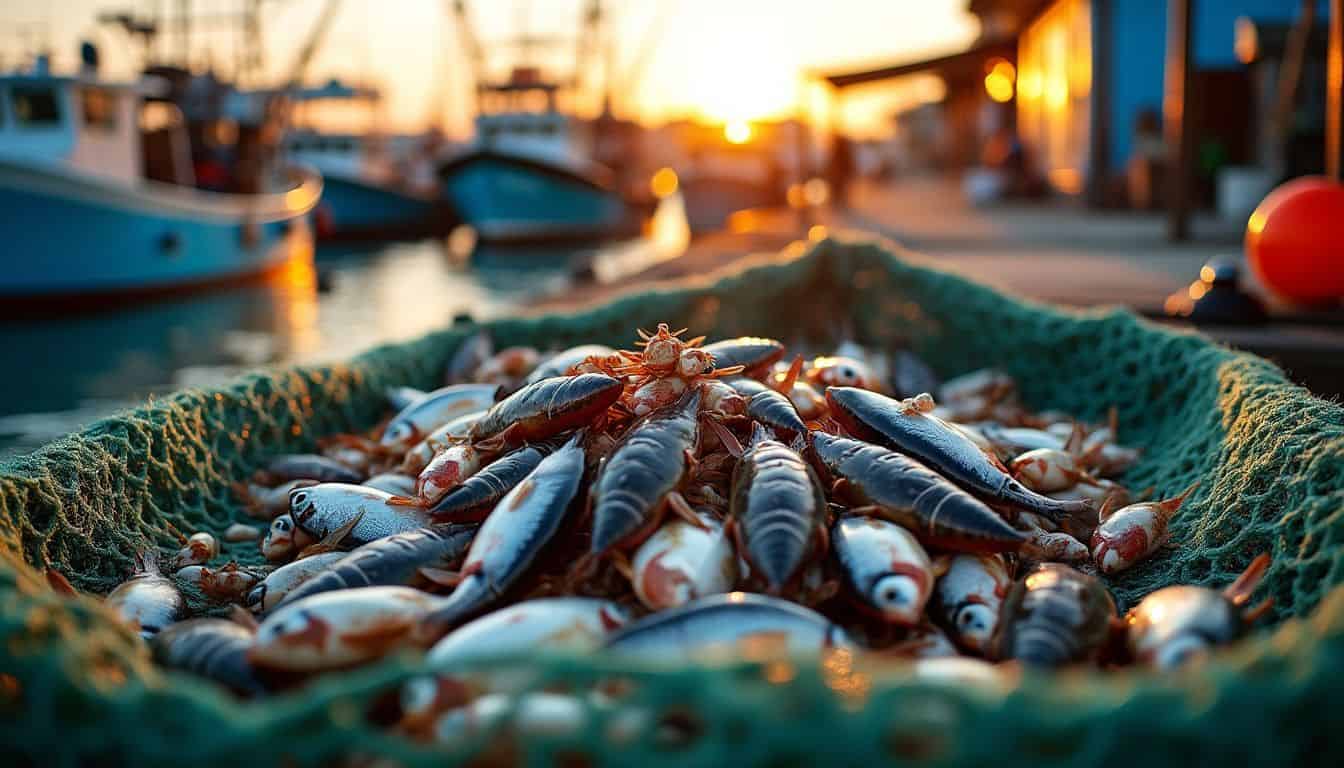
Fishing isn’t just about reeling in the big one. It’s a win-win for Mother Nature and local towns too! Curious how? Keep reading to find out.
Wildlife and Fisheries Management Support
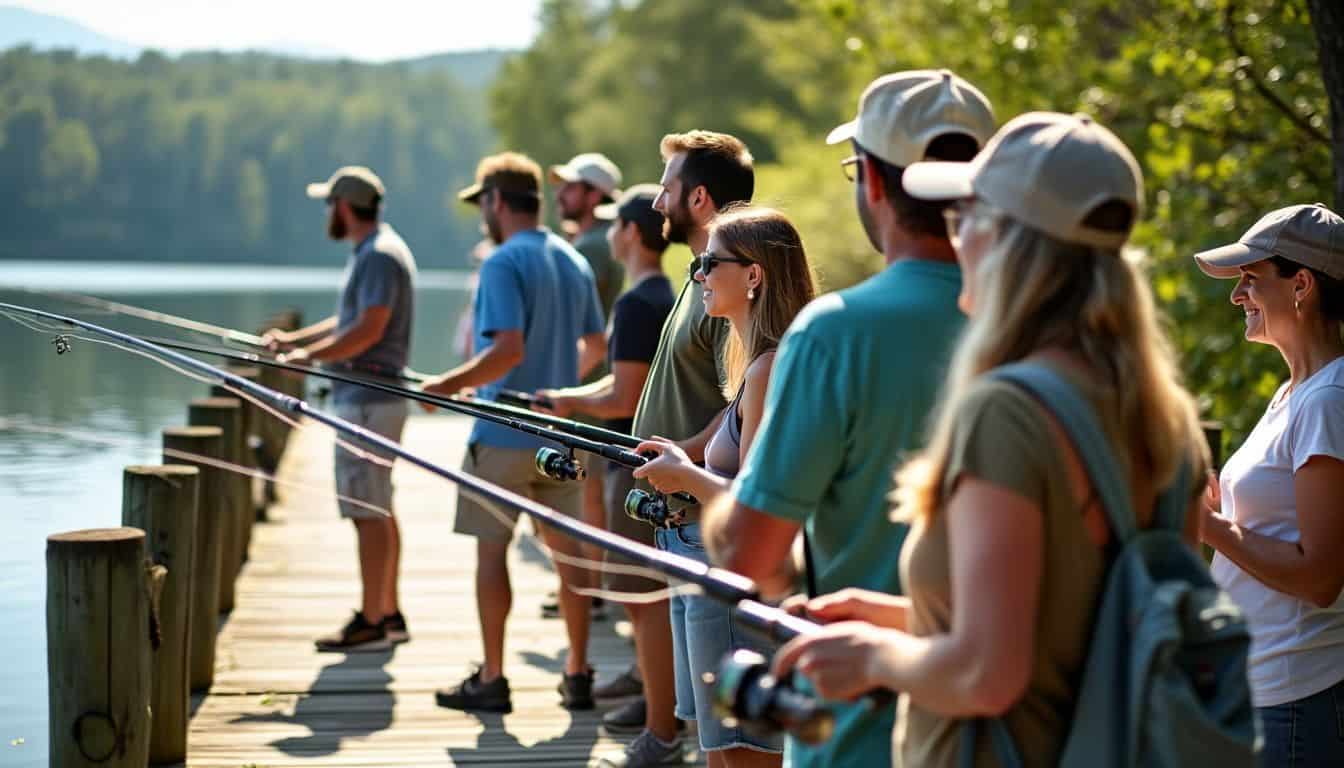
Fishing isn’t just about catching dinner. It plays a big role in protecting wildlife and fish. Anglers chip in cash through licenses and taxes. This money helps keep our lakes, rivers, and oceans healthy.
It’s like we’re all pitching in to take care of nature’s swimming pools!
I’ve seen firsthand how this works. Last summer, I went fishing at a local lake. The spot was clean, with new fish habitats. A sign explained how angler fees paid for it all. It felt good knowing my hobby was doing more than just filling my cooler.
We fishermen are secret heroes, keeping fish populations strong and waters clean… all while having a blast!
Local Economic Enhancement through Tourism

Fishing tourism brings big bucks to local towns. Anglers flock to prime spots, spending cash on gear, food, and lodging. This influx of visitors creates jobs and boosts small businesses.
Tackle shops, boat rentals, and fishing guides all thrive when anglers come to town. Even restaurants and hotels see a spike in customers during peak fishing seasons.
A good day of fishing can reel in more than just fish – it hooks the whole community.
The ripple effect of fishing tourism touches many parts of the local economy. Souvenir shops sell more T-shirts. Gas stations pump more fuel. Grocery stores stock up on ice and snacks.
It’s not just about the fish – it’s about the whole experience. And that experience keeps towns afloat. Next up, let’s dive into how fishing helps folks achieve personal fulfillment.
Achieving Personal Fulfillment
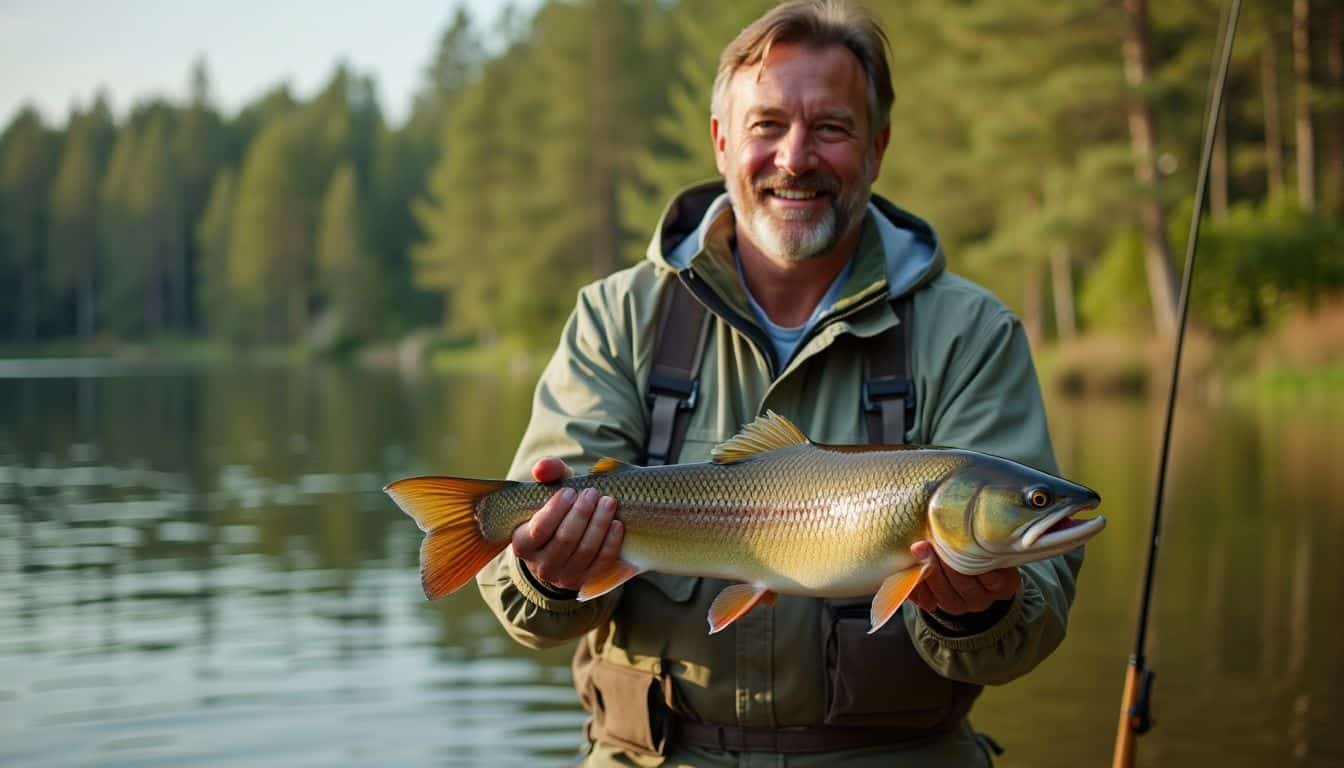
Fishing can give you a real sense of pride. It’s not just about catching fish. It’s about connecting with nature, too. Want to know more about how fishing can make you feel good? Keep reading!
Sense of Accomplishment
Fishing isn’t just about catching fish. It’s about the thrill of the chase and the joy of success. As you get better, you’ll feel proud of your skills. You’ll learn to read the water, pick the right bait, and reel in bigger catches.
Each fish you land is a small victory. It’s like solving a puzzle or winning a game. This relaxing hobby builds confidence and makes you feel good about yourself.
I recall my first big catch – a 20-pound salmon. My hands shook as I reeled it in. When I finally got it in the boat, I felt ecstatic. That rush of accomplishment is addictive. It keeps anglers coming back for more.
Whether you’re after trout in a stream or bass in a lake, each trip offers a chance to prove yourself. Fishing teaches patience and persistence – skills that help in all areas of life.
Connection with Nature
Fishing creates a strong connection with nature. It’s about more than just catching fish… it’s about taking in the sights and sounds of the outdoors. The soft sound of waves, birds singing above, and the fresh smell of water make a relaxing environment.
This link to nature gives us a break from our technology-filled lives, letting us slow down and enjoy simple pleasures.
Fishing puts us right in nature’s cycles. We learn to understand water patterns, fish behavior, and respect the balance of ecosystems. This firsthand experience builds a sense of care for our natural resources.
It’s no surprise that many anglers become passionate about conservation. They’ve seen directly how important healthy waterways are – not just for fishing, but for all living things.
People Also Ask
How does fishing boost my health?
Fishing offers a bunch of perks for your body and mind. It gets you moving, which is great exercise. Plus, eating fish can lower your cholesterol and provide omega-3 fatty acids. These good fats help your heart and brain. Fishing also cuts stress and anxiety, giving your mental health a lift.
Can fishing help the environment?
You bet! When you buy fishing licenses, you’re supporting conservation efforts. Many anglers practice catch-and-release, which helps keep fish populations healthy. By fishing responsibly, you’re playing a part in protecting marine ecosystems. It’s a win-win for nature lovers and fish alike.
Is fishing good for my diet?
Absolutely! Fish is packed with essential vitamins and nutrients. It’s a lean protein that fits perfectly into a balanced diet. Fish is rich in vitamin B12, which your body needs. By catching your dinner, you’re also reducing food waste. It’s a tasty way to boost your health!
How does fishing impact food security?
Fishing plays a big role in feeding the world. It provides a crucial source of protein for many communities. Sustainable fishing practices help maintain fish stocks for future generations. Even fishmeal, made from small fish, is used to feed farm animals. So, fishing touches our food supply in more ways than one.
What’s the deal with catch-and-release fishing?
Catch-and-release is a popular practice among anglers. It lets you enjoy the thrill of the catch without harming fish populations. This method helps maintain the balance in water ecosystems. It’s a great way to have fun while being kind to nature. Just remember to handle the fish gently before setting them free!
References
https://www.takemefishing.org/blog/october-2021/5-reasons-why-fishing-is-good-for-your-health/ (2021-10-13)
https://www.ncbi.nlm.nih.gov/pmc/articles/PMC8998353/
https://www.reelcoquinafishing.com/blogs/florida-fishing-blog/the-benefits-of-fishing-why-you-should-go-fishing (2022-05-18)
https://fishingbooker.com/blog/health-benefits-of-fishing/ (2023-10-11)
https://happyeconews.com/health-benefits-of-fishing-13-positive-physical-and-mental-effects/ (2022-03-25)
https://www.baptisthealth.com/blog/family-health/9-surprising-benefits-of-vitamin-d (2022-05-23)
https://www.ncbi.nlm.nih.gov/pmc/articles/PMC2908269/
https://scholars.unh.edu/context/thesis/article/2016/viewcontent/Leonard_unh_0141N_10113.pdf
https://dwr.virginia.gov/fishing/top-10-reasons-to-go-fishing/
https://cdnsciencepub.com/doi/10.1139/er-2015-0064
https://www.ncbi.nlm.nih.gov/pmc/articles/PMC9762678/
https://inthebite.com/2021/05/5-ways-fishing-makes-you-happier/

